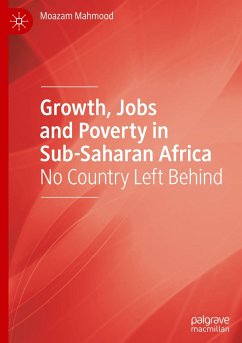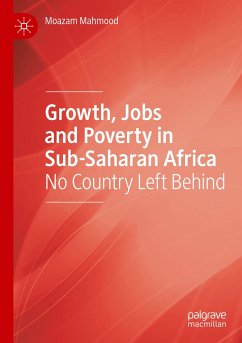
Impact of Structural Adjustment Program on Sub-Saharan Africa
Evaluating the impact of the Structural Adjustment Program (SAP) on Sub-Saharan Africa (SSA): A case study of Ghana
Versandkostenfrei!
Versandfertig in 6-10 Tagen
27,99 €
inkl. MwSt.

PAYBACK Punkte
14 °P sammeln!
SAPs are processes of market-oriented reforms in policies and institutions, with the goals of restoring a sustainable balance of payments, reduction of inflation, and creating the conditions for sustainable growth in per capital income.The SAP was introduced in the 1980's and 1990's by the Bretton Woods institutions for developing countries as a mettlesome tool to foster economic growth and development. The main objectives of SAP were to upsurge productivity in national economies, rectify balance of payment deficits, reduce government expenditure and boost economic growth and viability.Irrespe...
SAPs are processes of market-oriented reforms in policies and institutions, with the goals of restoring a sustainable balance of payments, reduction of inflation, and creating the conditions for sustainable growth in per capital income.The SAP was introduced in the 1980's and 1990's by the Bretton Woods institutions for developing countries as a mettlesome tool to foster economic growth and development. The main objectives of SAP were to upsurge productivity in national economies, rectify balance of payment deficits, reduce government expenditure and boost economic growth and viability.Irrespective of the luminous epistles of SAP believed to be the abracadabra to foster the abrupt sustainable fortunes of the African ambience, the supposed SAP as a talisman has rather created a volatile economic landscape which has further racked divergent opinions. It is therefore ironic that the literature is yet to reach a consensus about the effects of SAP on economic growth and development given the cornucopia of work already completed in the discourse of SAP.












